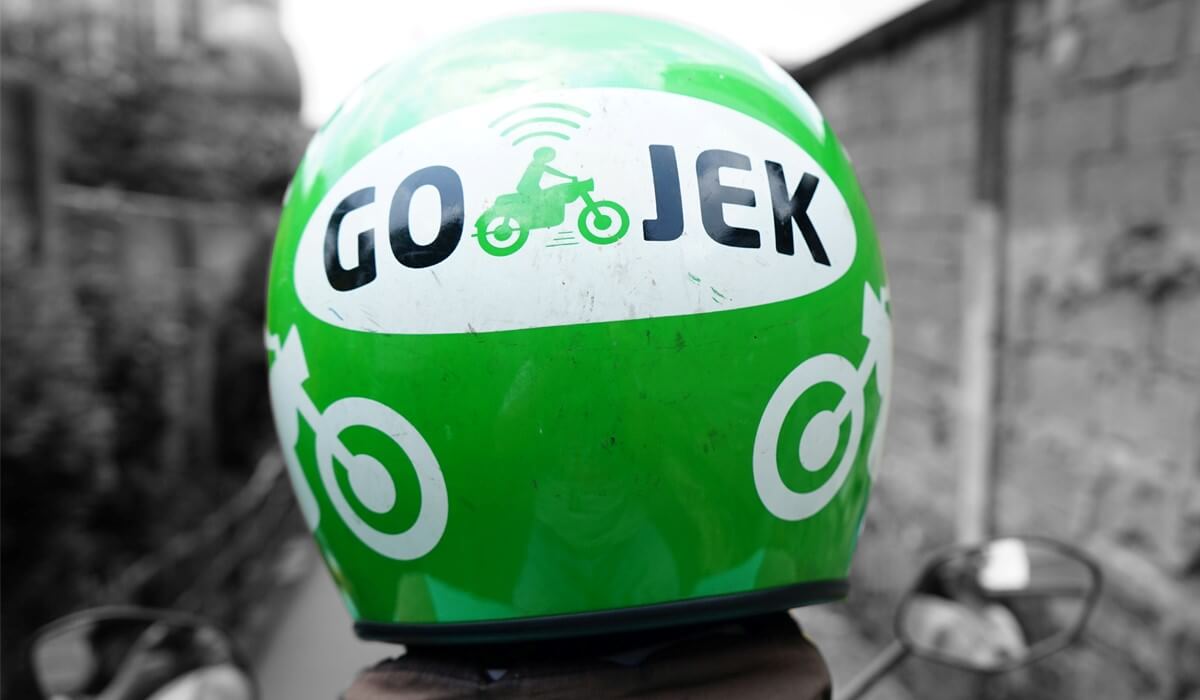เมื่อต้นเดือนพฤษภาคมที่ผ่านมา Go-Jek สตาร์ทอัพที่ให้บริการมอเตอร์ไซค์รับจ้างชื่อดังจากประเทศอินโดนีเซียประสบความสำเร็จในการระดมทุนได้มากถึง 1,200 ล้านดอลลาร์สหรัฐเพื่อใช้ในการขยายกิจการรุกตลาดทั่วภูมิภาคอาเซียน ตอนนี้ถึงเวลาแล้วที่จะเริ่มบุกตลาดในประเทศเป้าหมายอย่างจริงจังสักที

By early May, the Indonesian ride-hailing app Go-Jek had successfully raised 1.2 billion baht in the latest funding round to finance its expansion across Southeast Asia. The company is now poised to make its move to targeted countries.
Founded in 2011 by Indonesian tech talent, Nadiem Makarim, the last fund-raising round was supported by the Chinese internet conglomerate Tencent, boosting Go-Jek’s value to 3 billion baht.
The company will expand into Thailand, Vietnam, Singapore and the Philippines in the next few months, it said recently.
Go-Jek’s move will heat up the turf battles among ride-hailing tech services in Southeast Asia, an already harsh terrain, as evidenced by the recent regional assets sale by Uber to Singapore-based Grab.
Go-Jek, which currently operates only in Indonesia, said it would spend $500 million in its first international expansion in the next few months. Its overseas businesses will initially focus on ride-hailing but eventually expand to other services such as food delivery.
The company intends to replicate its success in Indonesia, the region’s most populous country with a population of 261 million and a rapidly growing economy. Go-Jek, a play on Ojek, an Indonesian word for bike-taxi service, has been embraced by city dwellers in Indonesia, where the app claims to offer 200,000 motorbike drivers.
It plans to follow the model of having local founders overseas who develop their own brands in each country.
Both Go-Jek and Grab are similarly stretching its services by turning their developed apps into one-stop shops for on-demand-services, including shopping, food and package deliveries, and payments and lending.
As per media reports, late last year, Go-Jek agreed to acquire three fintechs in Indonesia to assist its plan to penetrate the digital payments market.
The three fintech firms are Kartuku, an offline payments processing company, Midtrans one of the country’s leading online payments gateway and Mapan, a community-based savings and lending network.
The deals will secure its mobile payment service Go-Pay’s position in the burgeoning e-commerce market. E-commerce in Indonesia amounted to over $7 billion at the end of 2017.
Go-Jek will need to work with regulators to smooth the way for its new operations.
The company currently operates a fleet of motorcycle taxis, private cars and other services — from massage and house cleaning to grocery shopping, ticket buying and food delivery — all available at a smartphone users’ fingertips.
Southeast Asia’s ride-hailing market is expected to reach $20 billion by 2025, according to research done by Google and Temasek.
While Go-Jek has attempted to penetrate other markets after the first move in India in 2016, Grab, which is aided by $4 billion raised from investors led by the SoftBank Group, also has pushed aggressively onto Go-Jek’s home soil. Grab current operates in seven countries.
References: Bangkok Post, Go-Jek website, New York Times, Tech in Asia.

